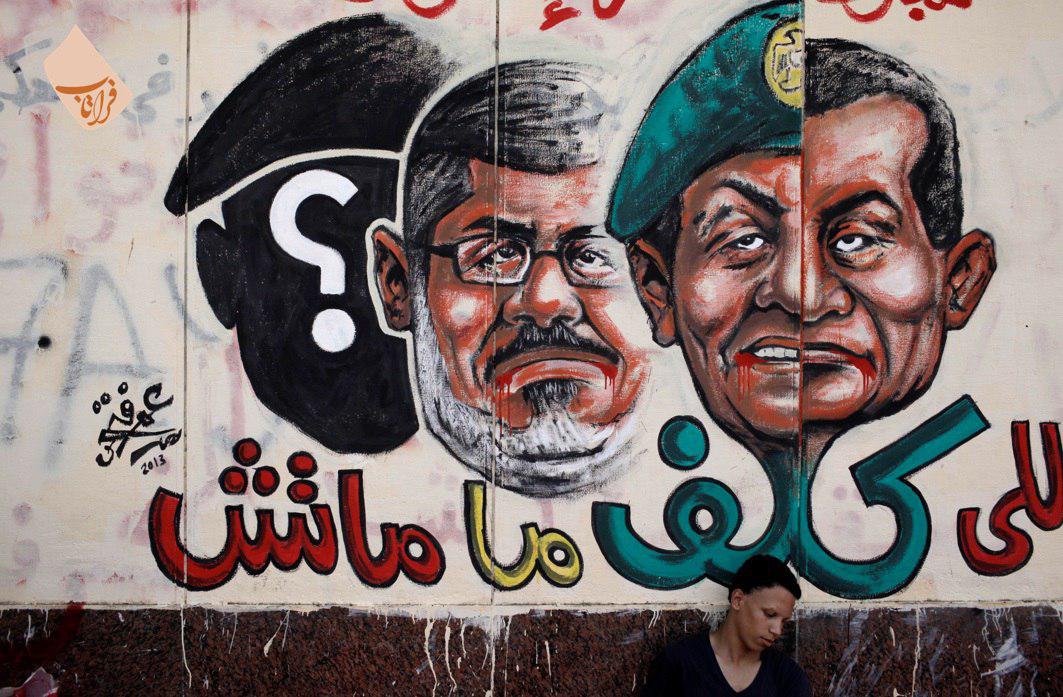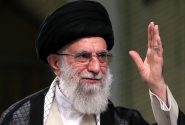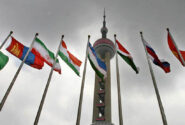“Teda Scotchpool”, a prominent theorist, divides revolutions into two political and social categories; In his book “Governments and Social Revolutions”, which was published at the same time as the victory of the Iranian revolution in 1979, he emphasized that revolutions are caused by structural and pre-determined factors and did not pay much attention to the role of the groups carrying the revolution. The famous sentence “revolutions are not made, but come” in his works shows the same meaning. Scotchpool believed that in political revolutions, government changes but social structures remain largely intact. It is also said that class conflicts do not have much place in political revolutions. These revolutions change the top of the pyramid of power, while in social revolutions, the depth of the changes is much greater and is associated with upsetting the situation and arrangement of political and social forces.
The revolution of February 11, 2011 in Egypt is a series of developments that lasted from January 25th to 11th and led to Hosni Mubarak’s resignation from the presidency. This revolution, which took place in the wake of the Arab Spring, only led to a change of government and removed the head of the power pyramid. As a result, for the first time, the president of Egypt was elected through elections. But it didn’t take long for the plans of the revolutionary government to show their inefficiency and criticism of its performance increased. As a result of these developments, the military leaders once again overthrew the elected government through a coup. In this way, it can be said that the Egyptian revolution was a political revolution on the one hand and an unfinished experience on the other hand; What’s more, the interim government after the coup and the government that came into being as a result of the next presidential election almost neutralized all the efforts of the Muslim Brotherhood’s revolutionary government and suspended the constitution approved by this party, which was approved by the people through a referendum.
Spring in the Arab world
The wave of transformation started in 2011 with the self-immolation of “Mohammed Bouazizi”, a young hawker, on December 18, 2011 in Tunisia and quickly spread throughout the Arab world. In the last month of this year, Tunisia experienced a crisis, and within a few days, the president of this country, Zine El Abidine Ben Ali, resigned from his position and fled the country. The wave of transformation reached Egypt after Tunisia; The leaders of Egypt openly emphasized the difference between this country and Tunisia, however, Hosni Mubarak had to resign 18 days after the protests began. Muammar Gaddafi, the former leader of Libya, also repeated the same song by blowing the wind of transformation to his country and said, “Libya is neither Tunisia nor Egypt”, but the civil war quickly engulfed this country as well, and the central government gradually lost its sovereignty. He defeated all areas in the fight with the opposition and finally, with the arrival of foreign forces, the last bases of the Gaddafi regime were conquered and Gaddafi was killed. As the wave of protests spread to the Persian Gulf region and specifically to Yemen and Bahrain, Ali Abdullah Saleh, the then president of this country, announced that “Yemen is a tribal country and is different from Egypt, Tunisia, and Libya.” However, on June 4, 2011, while he was injured, he handed over power to his deputy and fled to Saudi Arabia. The king of Bahrain, repeating the dictators of his counterparts in other Arab countries, called his country free from the wave of Arab revolution due to its population and smaller area, but soon the situation in this country became critical and the government of Bahrain resorted to quelling the protests. to the military forces of Saudi Arabia. “Bashar Assad”, the president of the Syrian Republic, whose government has been involved in people’s protests since January 26, 2011, at the beginning, referring to being next to Israel, considered the protests against him to be the efforts of traitors against the axis of resistance. But the passage of time proved that his hereditary and military government can no longer be liked by the Syrian people and the limits of protests cannot be limited to treason.
Egypt and the revolution
Egypt has always been under the control of military forces since its independence. The Free Officers coup in July 1953 formalized the presence of the Egyptian military in politics. In the 58 years of military rule, political and civil liberties in Egypt were severely limited, and the country remained in a state of emergency for various reasons, including the possibility of an Israeli attack from 1958 to 2011! With the election of the first popular president in this country after the February revolution of Egypt, it seemed that this country will go in a new direction. However, the revolution was limited to political aspects and did not cause Egypt to leave its place in the global power equation, something that happened with the greatest severity in the case of the Iranian revolution. For example, although the Brotherhood government announced that it would immediately open the Rafah crossing, which is considered the exit route from the Gaza strip, it never moved towards a direct confrontation with the Jewish government, and some popular protests gradually ended with the government’s ban on It was forgotten. Also, “Mohammed Morsi”, the new president of Egypt, while announcing his adherence to international agreements with various partners, announced his adherence to the “Camp David” agreement with the Israelis, and this in itself indicated that the Egyptian revolution was merely changes at the top of the power pyramid. is summarised. Also, the relations between Egypt and the United States remained the same despite the Islamic orientation of Mohamed Morsi, and Morsi demanded the continuation of American support for the Egyptian economy. It seemed that along with the increasing power of the Ennahda movement in Tunisia, the entry of the Muslim Brotherhood into the Egyptian presidential palace pleased Turkey and the ruling Justice and Development Party more than any other country, which had previously created similar trends in its model of Islamism. and had been able to move towards a mixture of political Islam and liberalism; In contrast, the main regional losers of the Egyptian revolution were the two countries of Saudi Arabia and Syria.
Morsi then retired several army chiefs in order to adjust the power of the Supreme Military Council and tried to replace the secular army with more reliable people. In this way, General “Mohammed Hossein Tantawi” stepped down from the presidency of the Supreme Military Council and “Abd al-Fattah al-Sisi” who is a brotherhood family. He became the head of this council and also assumed the position of the Ministry of Defense. But the subsequent developments took place in such a way that El-Sisi became the army’s choice to lead the coup, and on the anniversary of Morsi’s election, he was arrested and sent to prison.
Unsuccessful transition from movement to institution
Political movements are mainly characterized by fluidity and demands, and in contrast to established orders, they try to go beyond institutionalized patterns. But then the movements successfully enter the power equations or completely seize the political power, they need to adjust their demands and transition from the movement to the institution and a degree of conservatism. In fact, the heralds of changing the status quo become supporters of the status quo as soon as they gain power. In fact, movements that successfully enter power equations need to quickly stabilize their fluid logic with bureaucratic rules and engage in new recruitment in the public sphere; The weak performance of the Egyptian Brotherhood government in this regard caused not only all critics to gradually turn into opponents and protesters, but the Brotherhood’s actions led to the loss of former allies of this party. The Brotherhood’s inability to extend its authority to the various political, legislative and judicial institutions of this country also caused that there was never a one-handed rule after the revolution.
Constitutional trap
Another issue that caused the Egyptian revolution to deviate from the original path in less than two years was the dispute between the government and the judiciary over the constitution. Egypt is a divided society, and in this country, Islamists and secularists each have their supporters in some regions of the country, so that Morsi in the presidential elections, due to his closeness to the Muslim Brotherhood, only received nearly 52% of the votes of the participants. In the same election, Ahmed Shafiq, the former prime minister of this country during the Mubarak era, won 48% of the votes. This duality continued in the subsequent developments of Egypt. So that Morsi was criticized from two fronts in the rush to change the constitution; On the one hand, secular organizations such as the Supreme Military Council and Hosni Mubarak’s Nationalist Party mentioned Morsi’s efforts as “Islamist aggression against democracy in Egypt” and on the other hand, the inclusion of some strictly fraternal clauses in the draft constitution made even the camp of Islamist parties also cause a schism; In response to the fact that in the new constitution, instead of the principles of Islamic law, the five objectives of jurisprudence (religion, reason, generation, self and wealth) are included in the new constitution, the Salafi party of Noor and Karamat party removed their ministers from Morsi’s coalition cabinet and joined the opposition. They took refuge in the government. However, the constitutional referendum in 2012 also brought Morsi’s fragile victory. Among the 53 million people who were eligible to participate in the elections, only 33% participated in the elections and 63% of this number said yes to the constitution of the Brotherhood. However, the victory in this referendum not only did not stabilize the position of the Brotherhood, but also deepened the conflict between Islamists and secularists and made them confident in not compromising and entering the phase of protests and civil disobedience. At the same time, the army’s efforts to gain the opinion of Karamat Party and Nour Salafi Party were also effective, and these Islamist groups, while recognizing the nature of Morsi’s government, asked the people to force Morsi to accept reforms with their protests.
Egypt’s economy before and after the revolution
Statistics show that Egypt’s economy was in relatively good condition even on the eve of the revolution. In the mid-2000s, Egypt’s GDP experienced an annual growth of 7%. In 2010, the country’s foreign exchange reserves reached 35 billion dollars (an amount that covers 9 months of imports). According to the statistics of the Central Bank of Egypt, in the same year, the gross domestic product per capita of Egyptians (according to World Bank indicators) was equal to 2,600 dollars per year, which shows a 50% increase compared to the 1,400 dollars recorded for 2006.
Of course, these figures ignore some of the facts about Egypt’s unbalanced economic growth. Most of this growth has been related to consumption areas, not capital, and it has been more capital-intensive than its effect in creating new jobs. On the other hand, the index of economic corruption and inefficient bureaucracy should not be hidden behind the significant growth; During the previous Egyptian government, part of the country’s economy operated underground and informally. Research results by the Egyptian Center for Economic Studies in 2014 show that the value of Egypt’s informal economy was almost two-thirds of the value of the country’s entire mature economy. World Bank statistics also show that the poverty rate has increased from nearly 17% in 1999 to 25% in 2010. Therefore, it should not be assumed that the effect of economic deprivation in the Egyptian revolution was not as much as political and social motives. However, after the revolution, the instabilities caused the economy to stagnate and the growth to drop sharply. Political instability in these five years caused foreign investors to turn away from Egypt. At first, the power was in the hands of the Supreme Council of the Armed Forces, after the presidential election, the power was transferred to Mohamed Morsi. However, only one year later, the same council deposed Morsi, and then in a one-sided election, the leader of the coup, Abdel Fattah al-Sisi, came to power. During this period, the value of the Egyptian pound also fell, and this country was forced to borrow from international financial institutions and apply a strict capital control policy since 2011.
On the other hand, the military coup and the abandonment of the popularly elected government have also increased the distrust of international financial institutions and Egypt’s foreign partners towards this country. So that after the July 3rd 2013 coup d’état, the country’s foreign trade balance decreased to more than half.
In the end, it should be added that today almost nothing is left of the achievements of the revolution; The position of Egyptian Islamists in the politics of this country is not clear, and the military has once again dominated all aspects of Egyptian life. The political maneuvers of the El-Sisi government are only due to the upcoming presidential elections, and democracy cannot be expected from this general. On the other hand, in the final analysis of the current situation six years after the revolution in Egypt, it can be said that many pro-democracy groups, after participating and supporting the military coup, have now become aware of their mistakes and are dissatisfied with the military government, perhaps this lack In the long term, satisfaction will again provide the basis for cooperation between Islamist organizations and movements such as Tarom.





















